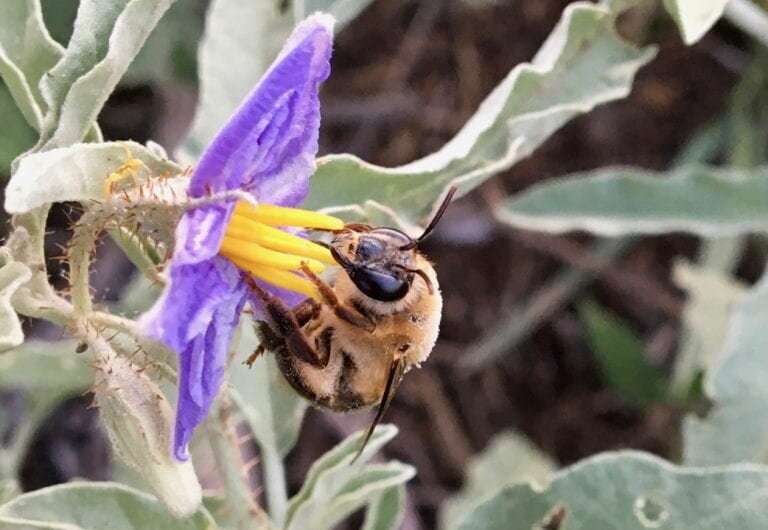This article has been reviewed according to Science X's editorial process and policies. Editors have highlighted the following attributes while ensuring the content's credibility:
fact-checked
peer-reviewed publication
trusted source
proofread
Biologists discover bees are the brew masters of the insect world

Scientists at the University of California, Irvine have made a remarkable discovery about cellophane bees—their microbiomes are some of the most fermentative known from the insect world. These bees, which are named for their use of cellophane-like materials to line their subterranean nests, are known for their fascinating behaviors and their important ecological roles as pollinators. Now, researchers have uncovered another aspect of their biology that makes them even more intriguing.
According to a study published in Frontiers in Microbiology, cellophane bees "brew" a liquid food for their offspring, held in chambers called brood cells. The microbiome of these brood cells is dominated by lactobacilli bacteria, which are known for their role in fermenting foods like yogurt, sauerkraut and sourdough bread. The researchers found that these bacteria are highly active in the food provisions of cellophane bees, where they likely play an important role as a source of nutrients for developing larvae.
"This discovery is quite remarkable," said Tobin Hammer, assistant professor of ecology & evolutionary biology and lead author. "We know that lactobacilli are important for fermentation of food, but finding wild bees that use them essentially the same way was really surprising. Most of the 20,000 species of bees get their nutrition from nectar and pollen, but for these cellophane bees, we suspect that lactobacilli are also really important. They have effectively evolved from herbivores into omnivores."
The study also found that the food provisions of cellophane bees have much higher bacterial biomass compared to other bee species, matching the unusually fermentative smell that emanates from their brood cells. These uniquely rich, lactobacilli-dominated microbreweries of cellophane bees could have important implications for the health of the bees, as well as for the ecology of the ecosystems in which they live.
"It was intriguing to find that cellophane bees use a strategy called 'spontaneous fermentation,' which is how certain fermented foods like sauerkraut are made. Rather than passing on starter cultures from generation to generation, they use wild strains of lactobacilli that are ubiquitous in flowers," said Hammer. "It suggests that fermentation-based symbioses like this one can evolve without domestication. What makes these bees special is that they've figured out how to create a favorable environment in which lactobacilli can grow really well."
This study highlights the importance of studying the microbiomes of insects, which are often overlooked in favor of more familiar animals like birds and mammals, despite playing an enormous role in ecosystems the world over. By understanding the complex interactions between microbes and their insect hosts, scientists can gain new insights into the biology of these important animals and the ecosystems that they inhabit.
More information: Tobin J. Hammer et al, Bee breweries: The unusually fermentative, lactobacilli-dominated brood cell microbiomes of cellophane bees, Frontiers in Microbiology (2023). DOI: 10.3389/fmicb.2023.1114849
Journal information: Frontiers in Microbiology
Provided by University of California, Irvine





















